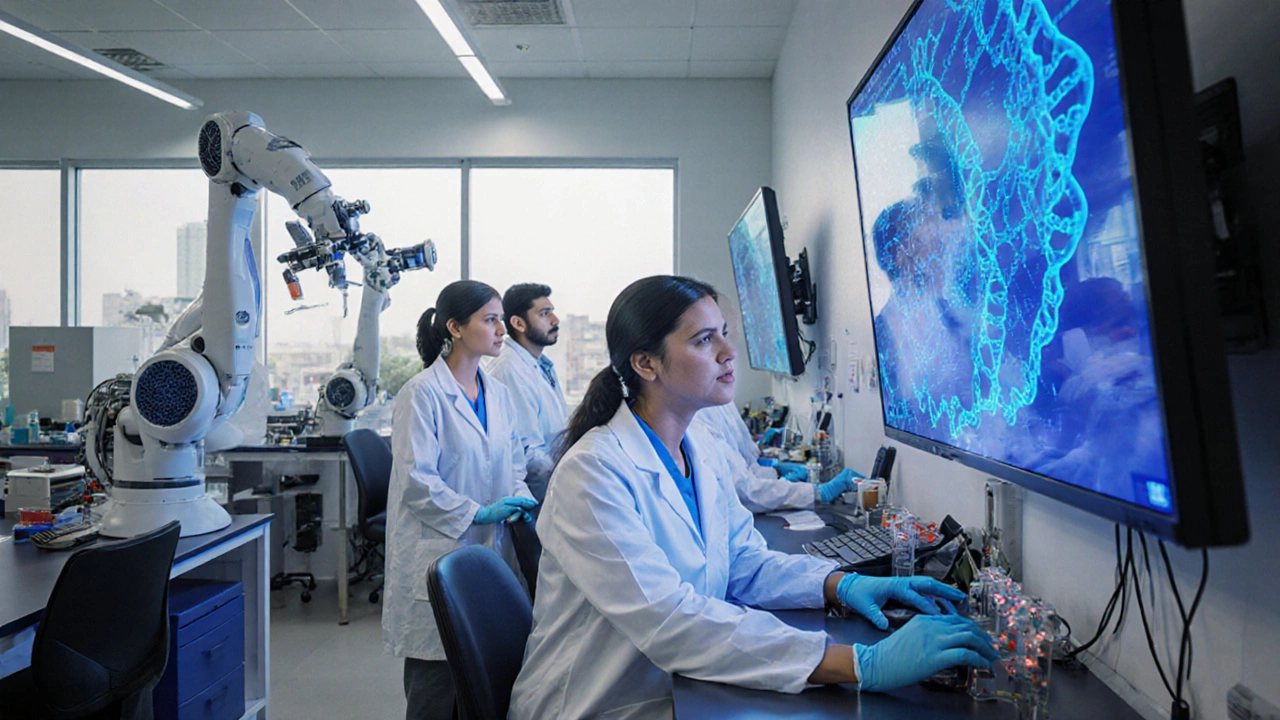Biotechnology Career Growth: Paths, Opportunities, and Real Success Stories in India
When you think about biotechnology career growth, the expansion of professional opportunities in using living systems to solve health, environmental, and industrial problems. Also known as biotech careers, it’s no longer just lab coats and microscopes—it’s a fast-moving field shaping India’s future in medicine, agriculture, and clean energy. From CRISPR-based therapies in Bengaluru to biofuel startups in Pune, biotechnology is no longer a niche. It’s a national priority, backed by government funding, private investment, and a growing pool of skilled graduates.
What drives this growth? Three key areas: genetic engineering, the direct manipulation of DNA to treat disease or improve crops, medical biopharmaceuticals, the development of drugs and vaccines using biological processes, and industrial biotech, using microbes and enzymes to replace chemicals and fossil fuels in manufacturing. These aren’t theoretical concepts—they’re hiring zones. Companies like Biocon, Serum Institute, and Zydus Cadila are expanding teams for roles in R&D, regulatory affairs, data analysis, and clinical trials. Even startups in Chennai and Hyderabad are hiring biotech graduates with just a bachelor’s degree if they can show hands-on lab skills or project experience.
And it’s not just about labs. Biotechnology now overlaps with AI, data science, and engineering. If you’re good at analyzing biological data, understanding regulatory pathways, or designing scalable production systems, you’re in demand. The job isn’t just about what you studied—it’s about what problems you can solve. A recent survey of Indian biotech firms found that 68% of new hires in 2024 came from non-traditional backgrounds: computer science grads who learned bioinformatics, mechanical engineers who worked on bioreactors, even microbiology students who built their own diagnostic kits.
There’s also a quiet revolution in rural India. Biotech isn’t just in cities—it’s in villages where drought-resistant seeds, low-cost diagnostic tools, and affordable vaccines are making real differences. That means career paths aren’t limited to corporate labs. You can work with NGOs, public health programs, or government missions focused on food security or disease control. The same skills that land you a job in a pharma company can help you design a community health intervention.
What you’ll find below aren’t generic career tips. These are real stories and breakdowns from people working in the field—what their days look like, how they got hired, where the money is, and what’s actually changing in Indian biotech right now. You’ll see how technology transfer works in practice, how researchers get paid, and why collaboration matters more than credentials. This isn’t a dream job list. It’s a clear map of where the field is going—and how you can be part of it.





